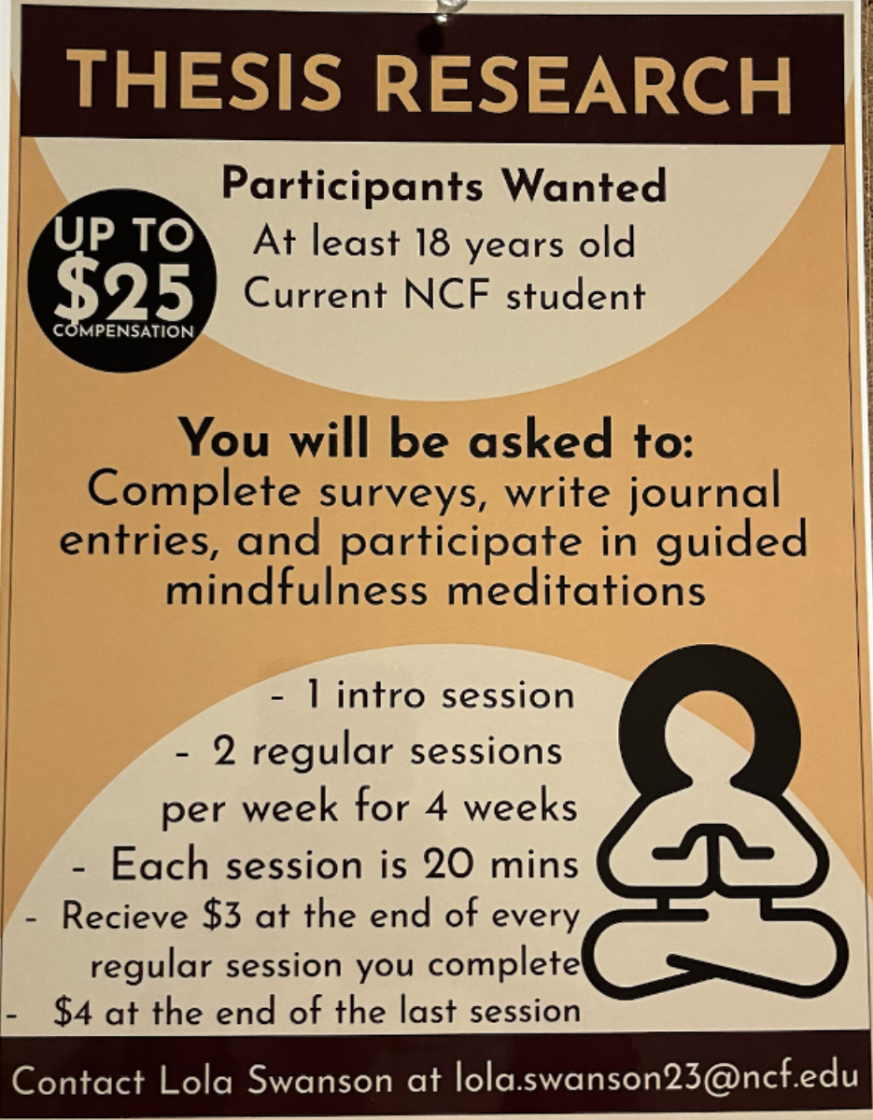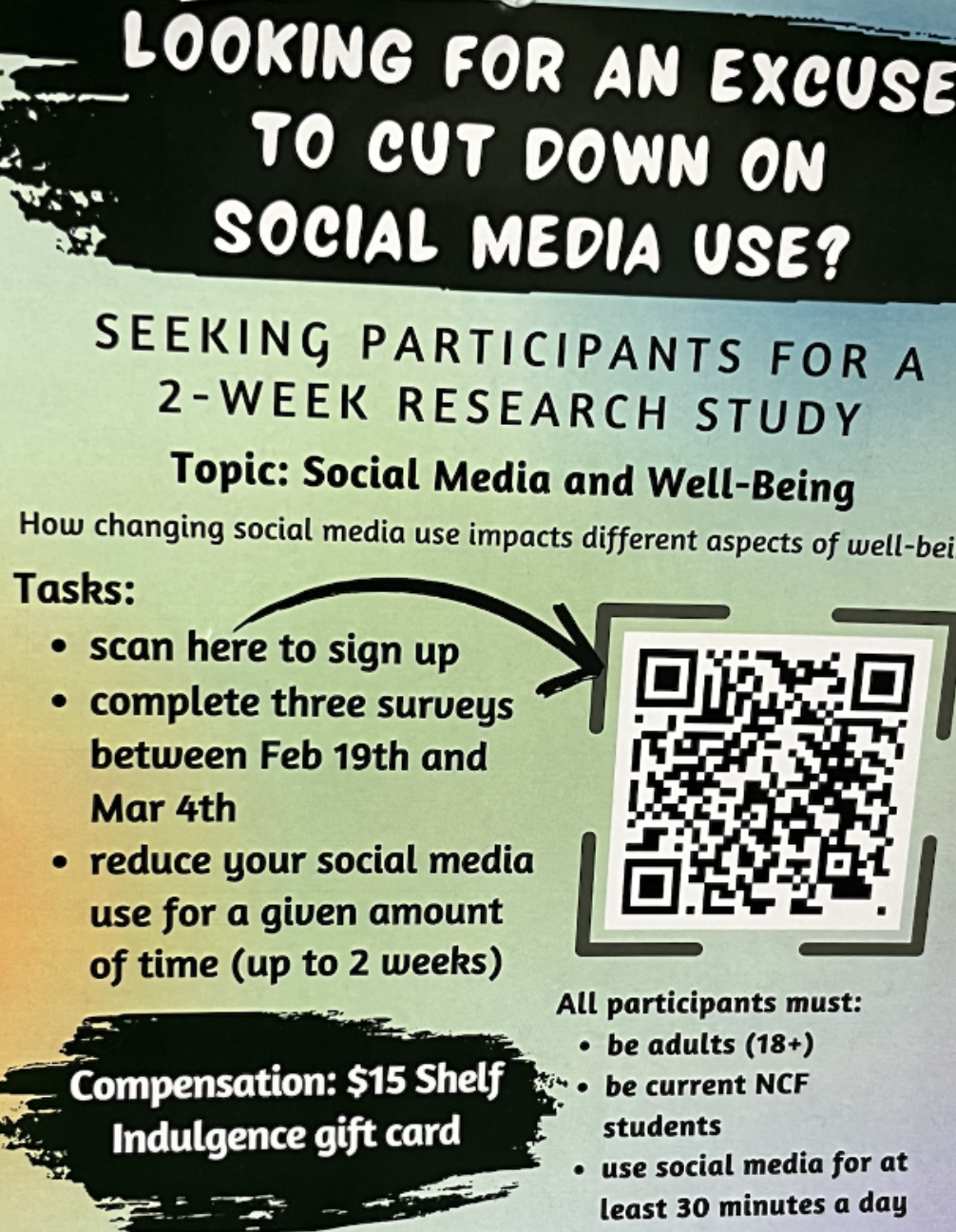With the downfall of the forum and Student List, thesis students are having trouble getting the word out to potential participants in their research projects. The Catalyst reached out to provide an additional platform for these students to announce their projects and to highlight the importance of helping fellow students pursue higher educational research.
Moriah Olsen is conducting interviews for their thesis about one’s relationship with their pet. Responses will remain anonymous and participants must be at least 18 years old. In an email to the student body, they ask, “Are you a current or former student? Are you queer and do you have a pet? Are you interested in sharing your experience with your pet? If so, I would love to interview you.”
Please reach out to moriah.olsen19@ncf.edu if interested in participating or with any questions.
Lola Swanson is conducting a thesis on guided mindfulness meditations for her/their [mv1] Philosophy and Psychology/Neurology Area of Concentration (AOC). According to an email sent to the student body, “You will be asked to come to the psychology lab a total of nine times, for about 20 minutes each time. The first session will be an introductory session. The following eight sessions will take place over the course of four weeks, with two sessions each week.”
Participants will be compensated up to $25 total, $3 for each session not including the first and $4 for the last session. If participants drop out any time, they will be paid for the sessions they participated in. Students 18 years of age or older can reach out to lola.swanson23@ncf.edu.

Sara Sarnicki is conducting a thesis experiment on communication between autistic people. According to Sarnicki’s research, autistic people have an easier time communicating with fellow autistic people, but most autism studies have dealt with autistic communication with non-autistic people.
“My thesis study design is the first experiment that I know of in literature that will hyperscan two autistic brains, so it’s pretty groundbreaking!” Sarniki said in an email to the student body.
In email correspondence with the Catalyst, Sarniki explained that temporoparietal hyperscanning hasn’t been done between autistic participants before, only autistic and non-autistic. “Instead, my study follows the double-empathy paradigm and is neurodiversity affirming, characterizing autistic communication and brain synchrony in relation to other autistic people on its own terms, not in relation to a neurotypical ‘normal/control’ subject.”
Sarniki’s “neurodiversity affirming research” will involve an electroencephalogram (EEG) conducted at Prof. Peter Cook’s lab in Palmer C. Participants will receive $10 for a total of 45 minutes to an hour participation. Participants must be at least 18 years old and be New College students or alums. The study is not gender- or sex-specific. Please reach out to sara.sarnicki24@ncf.edu with questions.
The Catalyst encourages students to rack up good “thesis karma.” Participating in research conducted by fellow students brings the school together and enriches the experience of higher education.

